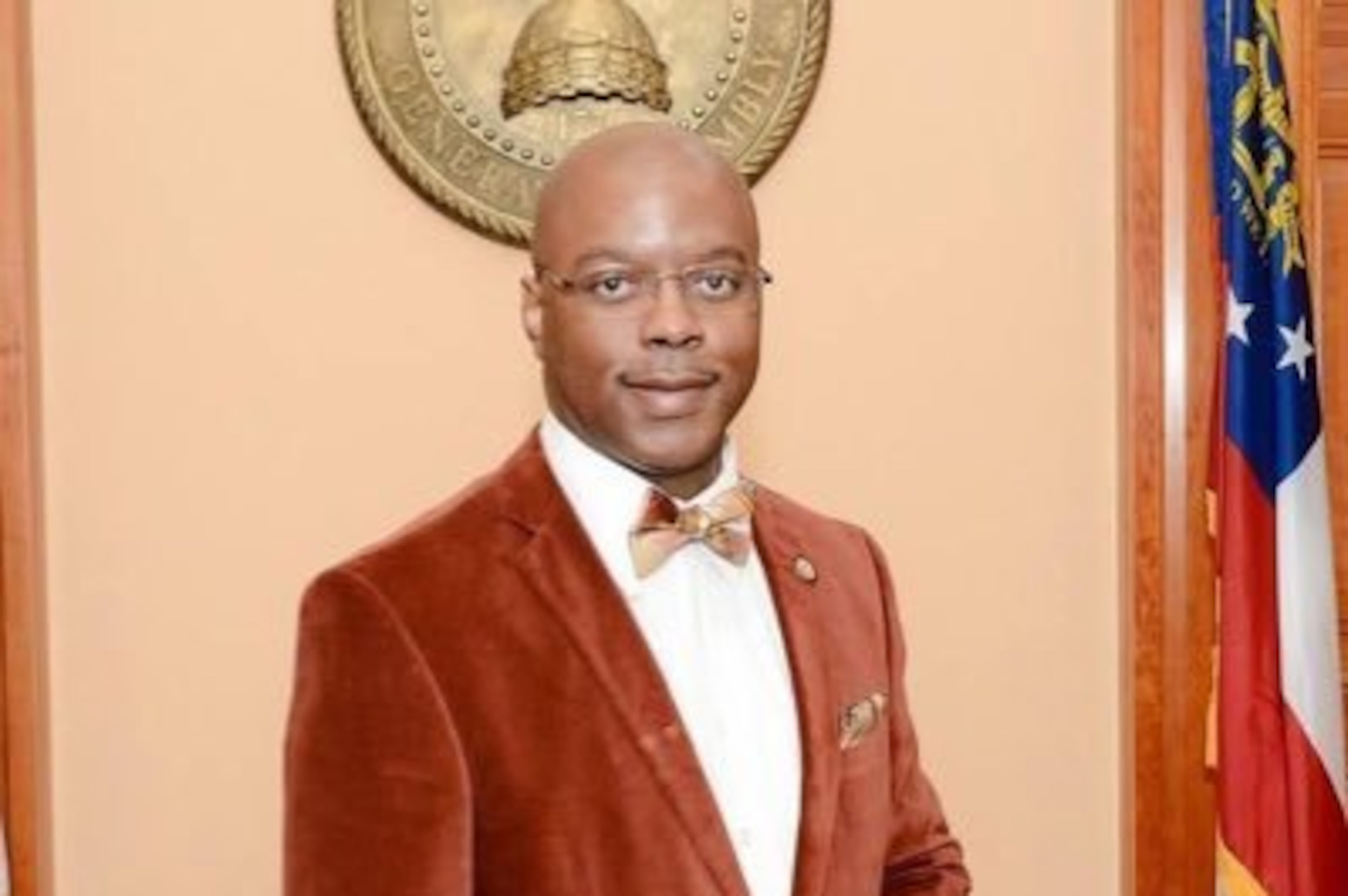Georgia’s Austin Scott falls short in surprise campaign for U.S. House speaker
WASHINGTON — U.S. Rep. Austin Scott, who hails from rural South Georgia, went from relatively unknown political figure on the national stage to a candidate for House speaker Friday. He lost a Republican caucus vote to Ohio Rep. Jim Jordan, but Scott earned roughly one-third of all votes cast, considered a feat for a man who had launched his campaign only three hours prior.
Scott, a Tifton Republican and the longest-serving Republican in Georgia’s congressional delegation, announced he was running for speaker after Republicans met Friday morning. Lawmakers were discussing a path forward after Majority Leader Steve Scalise announced he was ending his bid to become speaker, and many members had expressed support for making Jordan, a co-founder of the House Freedom Caucus, the party’s new nominee.
It’s still not certain Jordan would get the 217 votes needed to become speaker in a vote by the entire House.
Scott, who on Thursday declared he would never support Jordan for speaker, announced during a break for lunch that he was offering himself up as an alternative for the top leadership post, which would put him second in line to the presidency.
“I have filed to be Speaker of the House,” the Tifton lawmaker wrote on X, the social platform formerly known as Twitter. “We are in Washington to legislate, and I want to lead a House that functions in the best interest of the American people.”
Scott, however, later said that if Jordan became the party’s nominee, he would support him on the floor during any official vote to name a speaker. After the nomination where Jordan bested Scott, GOP members took a second secret-ballot vote to gauge how many were ready to support Jordan publicly. That tally showed 152 backing Jordan, with 55 still in opposition.
Lawmakers headed home for the weekend after that second vote, so the House will be without a speaker for at least a few more days before the GOP meets Monday. A new vote may not come until Tuesday.
Scott was first elected to the House in 2010 and serves as a vice chairman of the Agriculture Committee. He is also a member of the House Armed Services Committee, where he has championed resources and funding for Georgia’s military bases.

He is considered a mainstream Republican and was among the vast majority of GOP members who backed Speaker Kevin McCarthy throughout 15 rounds of voting in January. Scott also backed McCarthy in a vote earlier this month that led to his ouster after eight Republicans sided with Democrats to remove him from office.
Since then, Scott has become increasingly critical of the party’s right wing and the dysfunction that has shut down all activity in the House.
“There are people in there that are honorably trying to get to the right place, and then there are people in there, as you know, that like to go on the TV and are not necessarily negotiating for anything other than TV time,” he told CNN on Thursday night. “It makes us look like a bunch of idiots.”
Scott faced long odds for the nomination.
He did not have the national profile of McCarthy, Scalise or Jordan, and his candidacy was mainly characterized as an effort to make it tougher for Jordan to coast to the nomination as the sole candidate.
Even close friends of Scott’s said they were caught off guard by the sudden announcement, which was so out of step with the head-down persona that the Georgian has cultivated at the U.S. Capitol. But they said the leadership crisis has so infuriated him he felt compelled to run.
He told reporters he had not expected to seek the job when he woke up Friday morning but felt led to do so after the morning meeting. Constituents had been calling the congressman’s office to advocate for and against Jordan prior to Scott’s own announcement. Staffers were directed to tell them that Scott had respect for Jordan despite his declarations he would not support him as speaker.
Scott and his allies, including some lawmakers who are close to McCarthy, attempted to whip votes to compete with Jordan. Rep. Frank Lucas of Oklahoma delivered the speech nominating Scott, and Reps. Rick Crawford of Arkansas and Ann Wagner of Missouri followed up with remarks of their own.
Many members of Georgia’s delegation had endorsed Jordan before Scott entered the race, and they said they would not go back on their word. That includes Reps. Andrew Clyde of Athens, Mike Collins of Jackson and Marjorie Taylor Greene of Rome.
Greene and Clyde posted new endorsements of Jordan on social media after Scott’s announcement.
“We need a fearless fighter,” Clyde wrote. “We need an effective leader. We need a principled conservative. We need Speaker Jim Jordan!”
As Republicans gathered for the closed-door nomination vote, Greene told reporters that Scott’s announcement seemed half-baked.

“I don’t think trying to be speaker of the House is something you just up and decide to do,” she said. “I think it requires a lot of planning and preparation.”
Rep. Barry Loudermilk, who lives in Cassville, had supported McCarthy and Scalise during the previous nomination votes but announced prior to the Friday afternoon meeting that he was backing Jordan over Scott.
Meanwhile, Rep. Buddy Carter told a reporter from The New York Times before the vote that he was keeping an open mind.



